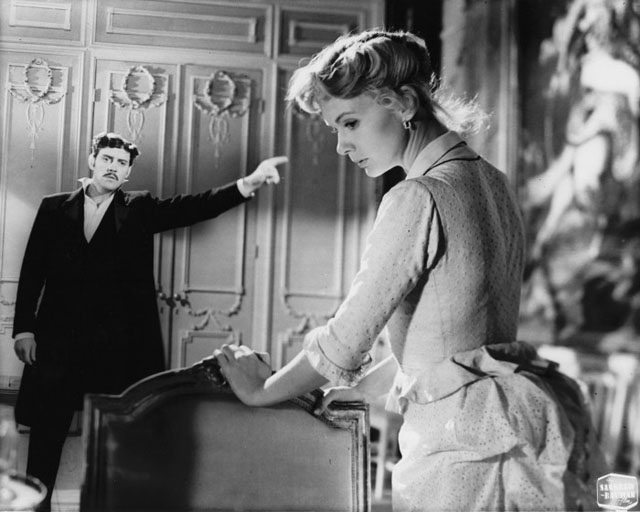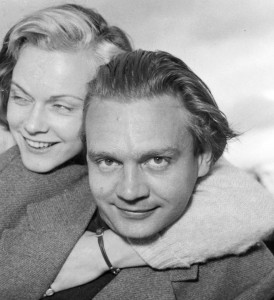“Anita Björk, one of Sweden’s most respected actresses and a performer for director Ingmar Bergman both onstage and onscreen,” has died in Stockholm today, reports John Asp for Variety. She was 89. “Björk’s international breakthrough came with the title role in Alf Sjöberg’s 1951 Strindberg adaptation Miss Julie, which won the grand prize at Cannes.”
Matt Mazur at PopMatters: “Björk has a face that can one second can rendered into a mask that makes Miss Julie out to be as timid as a mouse, while the next second, the same face is perfectly capable of painting the actress to be the most cross dominatrix her foot man has ever encountered (literally—the scene where she ‘trains’ her fiancée after brutally whipping her dog is akin to literary-pedigreed sadomasochistic soft core porn). It is this delicate duality embedded into her features that marks the performance of Björk as being thoroughly ahead of it’s time, much like the subversive words of August Strindberg as he dissects class and gender long before they were studied terms. Unafraid of exploring sensuality in the wake of bacchanalian lust, and the inevitable fallout that comes from following the choices made by the titular character, Björk hovers like a ghostly presence over the entire film.”
Following this breakthrough, Björk “then received several offers from Hollywood,” writes Asp, and “starred opposite Gregory Peck in Nunnally Johnson’s Cold War thriller Night People, shot in England and Germany… Björk also played Queen Victoria in Bille August’s 1992 Cannes Palme d’Or winner The Best Intentions, a pic based on Bergman’s autobiographical novel.”
In an entry entitled “The Hitchcock Blondes That Got Away,” The Short Knight notes that Hitch wanted Björk for the role of Ruth Grandfort in I Confess (1953). “[S]he arrived in Hollywood with her lover and their baby in tow. Fearing another Puritanical moral outcry of the kind that nearly ended Ingrid Bergman’s film career, Warner Bros. executives sent Björk back home.” The role went to Anne Baxter.
And that lover was writer and journalist Stig Dagerman, whom she spoke about quite eloquently in 1991. Following his suicide in 1954, she concentrated on acting at Stockholm’s Royal Dramatic Theater, where she’d eventually take on more than 80 roles. The Ingmar Bergman Archives has a few photos.
Update, 10/26: Bruce Weber for the New York Times: “Over more than four decades, Ms. Björk worked in a dozen projects directed by Mr. Bergman, including the 1952 film Secrets of Women, in which she played an adulterous wife who makes a tenuous peace with her guilt, and two Dramaten [Royal Dramatic Theater] productions that were filmed for television and toured internationally, including in the United States, where they appeared at the Brooklyn Academy of Music and elsewhere. One was Yukio Mishima’s Madame de Sade, about the Marquis de Sade as seen through women’s eyes; Ms. Björk played the mother of de Sade’s wife, his astringent critic, who attempts to unravel her daughter’s marriage. She also played the Swedish writer and Nobel laureate Selma Lagerlof in The Image Makers, a drama by Per Olov Enquist about Ms. Lagerlof’s encounter with the filmmaker Victor Sjöström, who was attempting to adapt one of her novels. ‘Gravity cast in granite,’ Ben Brantley of The Times wrote in 1999 of Ms. Björk’s performance.”
For news and tips throughout the day every day, follow @KeyframeDaily on Twitter and/or the RSS feed. Get Keyframe Daily in your inbox by signing in at fandor.com/daily.





